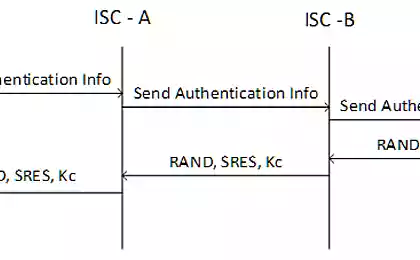159
12 Things You Should Do If You Send A Message That Is Uncomfortable
Don’t be ashamed or blamed if you send an awkward message – there are a few other things you can do to get through this moment.

Each of us at least once in his life got into a situation when after sending a message, he wanted to fall through the ground. Maybe you accidentally sent a private message to a work chat, wrote something stupid or too emotional. The good news is that such moments go through absolutely everything, and there are proven ways to deal with awkwardness.
Psychology of awkwardness: why we react so sharply
Awkwardness is a universal human experience that performs an important social function. According to research by psychologists at the University of California, feeling uneasy activates the same areas of the brain as physical pain. This explains why memories of awkward moments can literally cause discomfort years later.
Awkwardness is a signal to our psyche that we have violated social norms and may lose touch with the group. In ancient times, it was critical to survival.
But in today’s world, where we communicate primarily through digital channels, this mechanism often works falsely. One bad message is unlikely to ruin your career or relationships, although our brains may convince us otherwise.
12 proven ways to cope with awkwardness
1st
Take a deep breath and stop.
The first thing to do after sending an awkward message is to stop and take no action for at least 10 minutes. Panic can lead to even more unsuccessful messages.
2.
Activate the 5-4-3-2-1 technique
This exercise will help you regain control of your emotions. Name 5 things you see, 4 you hear, 3 you can touch, 2 you can smell, and 1 you can taste.
3
Assess the real scale of the situation
Ask yourself, “Will it matter in 5 years?” The answer is likely to be negative. Most awkward moments are forgotten by others much faster than we think.
4.
Use the 24-hour rule.
If the situation does not require an immediate response, wait a day before doing something. During this time, emotions will subside, and you will be able to assess the situation more objectively.
5
Admit the mistake with humor
If the message is really inappropriate, the best way to fix the situation is to admit the mistake with a bit of self-irony. This shows maturity and helps defuse the situation.
6
Don’t make things worse by apologizing.
Excessive apologies can bring more attention to a mistake. A sincere apology is usually enough.

7
Practice self-compassion
Studies show that people who treat themselves with understanding recover faster from embarrassing situations. Talk to yourself as you would to your best friend.
8.
Turn your attention to others.
When we are fixated on our own awkwardness, it helps to remember that others have their own problems and worries. Your message may not be as important to them as you think.
9.
Draw a lesson
Use the situation as an opportunity for growth. What can be done differently in the future? What privacy settings should be changed?
10.
Engage in physical activity
Exercise helps to cope with stress and switch attention. Even a short walk can significantly improve your condition.
11.
Share with a trusted person
Talking about the situation to a loved one can help gain support and a new perspective on the problem. People often react more calmly than we expect.
12.
Create an action plan for the future
Develop a strategy for such situations. For example, always check the recipient before sending a message or use the delay in sending in messengers.
Scientific facts about awkwardness
According to a 2018 study published in the journal Social Psychology, people overestimate how much others notice and remember their awkward moments by an average of 5 times. This phenomenon is called the “spotlight effect”.

When it is worth asking for help
It's important to remember: If experiences due to awkward situations seriously affect your life, interfere with work or relationships, you should consult a psychologist. Social anxiety is a real disorder that can be treated.
Chronic avoidance for fear of doing something awkward can lead to isolation and depression. Modern psychotherapy offers effective methods of dealing with social anxiety, including cognitive behavioral therapy and mindfulness techniques.
Remember, all great communicators have gone through a lot of awkward moments. The difference is they didn't let those moments stop them.
Conclusion
Awkward moments in communication are not a sign of inferiority, but an integral part of the human experience. The main thing is not to let them control your life. Use these 12 strategies to turn awkwardness into an opportunity to grow and develop emotional resilience.
Next time you send something awkward, remember: in a month, it’s just going to be a funny story!
Glossary
Spotlight effect
Cognitive distortion, in which people overestimate how much others notice their behavior and appearance
Social anxiety
Persistent fear of social situations associated with fear of negative evaluation of others
Self-compassion
The ability to treat yourself with understanding and kindness in difficult moments, without self-criticism
Cognitive behavioral therapy
A method of psychotherapy aimed at changing negative thoughts and behavioral patterns
Mindfulness
Practice conscious presence in the present moment without judging your thoughts and feelings
Emotional resilience
Ability to cope with stress and recover quickly from difficult situations























